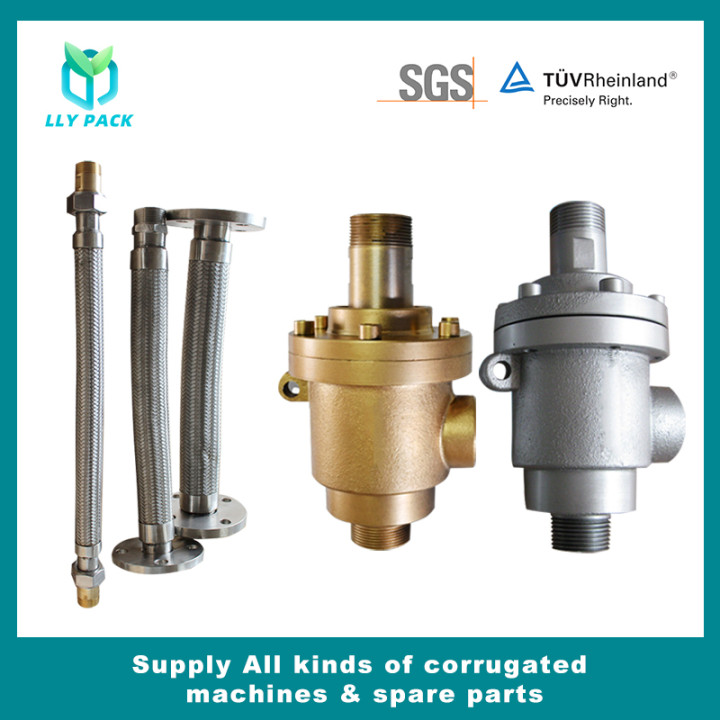Corrugated paper and cardboard testing methods and standards (Hyda)
Haida instrument 076989280808/4000711808
Corrugated paper and cardboard testing methods and standards are as follows:
1 , paper quantitative test (GB/T451.2-2002 "paper and cardboard quantitative determination" )
Quantification is one of the most basic performance indicators of paper, and quantification is often regarded as a characteristic parameter of paper. The so-called "quantitative" is the "mass per unit area of paper and board measured in accordance with the specified test method, and the unit is g/m2 ."
The accuracy of paper quantitative determination is related to the area accuracy of the tested sample and the accuracy of the weighing device. The test method standard has stringent requirements for the sample cutting device and the weighing instrument. The key point is the sampling accuracy of the quantitative sampler. Because the fiber of the corrugated medium is relatively thick, it is recommended to use the HD-515 quantitative sampler.
2 , paper thickness test (GB451 · 3-2002 "paper and board thickness measurement method" )
The thickness of the basic performance parameters of the paper, the strength properties of some of the basic characteristics and the thickness of the paper, and therefore it is an important performance test items, unit μ m or mm. The thickness inspection must be carried out under the specified conditions. The paper thickness inspection instrument must meet the three basic requirements for detecting the contact area of the paper, the contact pressure and the touchdown velocity. Otherwise, the measurement result is inaccurate.
3 , ring pressure strength test (GB/T2679.8-1995 - "paperboard ring pressure strength test method" )
Cardboard ring compression strength refers to the maximum force that can be taken before a sample is crushed by inserting a sample of a certain size into the sample holder to form a circular ring and applying pressure between the upper and lower pressure plates. The ring pressure strength characterizes the ability of the cardboard edge to withstand pressure and is an important strength indicator for cardboard and corrugated paper. The paperboard ring pressure strength affects the side pressure strength of the corrugated board, and the side pressure strength of the corrugated board will have an important influence on the overall compressive strength of the carton. A certain size of sample is inserted into the circular tray to form a circular ring on the side of the sample, and then the compression of the compressor is performed on the pressure plate for uniform compression. When the sample is crushed, the displayed value is the ring pressure. strength. The standard sample specification should be: length ( longitudinal ) 152mm ± 0.2mm , width 12 . 7mm ± 0.1mm , take 10 pieces for inspection, 5 pieces face to the front to detect, and the other 5 pieces face to the outside to load into the circular tray to detect separately. Then, take the result of the 10 pieces of detection to find an average value. Used for conversion. In order to improve the accuracy of the test, care should be taken to carefully test the quantitative indicators because the quantitative detection of the numerical values has a direct influence on the results of the conversion of the cir- culation index. (HD-513-2 Ring Crush Tester ) Therefore, the quantitative test sample should have a certain representativeness. It is better to take 10 samples from different positions in the transverse direction of the paper tube for testing. Find the average value. Relatively accurate. If 10 samples are taken from a longitudinal part of the paper cylinder, the detection value is often not representative, because the lateral thickness error of the paper tube is relatively larger than the longitudinal error. In addition, the accuracy of the test specimen thickness is also related to the test results of the crush strength. Because of the different thicknesses of the specimens, the diameter of the core used for detecting the ring pressure is also different. Therefore, the thickness test should also be used to test several points in different parts, find the average value, as the final test results. The thickness index is accurately detected, and the gap between the sample placed in the tray is appropriate, which can ensure the accuracy of the ring pressure strength detection. This requires that the appropriate tray size ( diameter ) must be selected in strict accordance with the thickness of the sample. The tightness and quantification of the base paper greatly affect its crush strength. For a paper with good crush pressure, the ring pressure index is also correspondingly high; only by first measuring the ring crush strength value, can we obtain the cir- culation index value. The following is the formula for the conversion of the cir- culum pressure and the ring crush index:
1 Ring crush strength: R=F / 152 . Where: R is the ring pressure strength in kN / m ; F is the force reading force when the sample is crushed, unit N ; 152 is the length of the sample in mm .
2 Central pressure index: Rd=1000R / W . In the formula: Rd represents the ring pressure index, unit N · m / g ; R represents the ring pressure strength, unit KN / m : W is the sample's quantitative, unit g / m2 .
4. Water content ( moisture ) test (GB/T462-2003 "Determination of paper and board moisture" )
Moisture content is also an important performance indicator for corrugated paper. The so-called moisture content refers to the content of water in the base paper or paperboard, expressed as a percentage. The moisture content standard of carton base paper differs according to the different paper grades (for example, see the relevant standards in the previous section ). The moisture content has a great influence on the strength of the carton box. Therefore, this is also the case where the moisture content becomes 3 cartons. The main reason for one of the heavy defect inspection items. Measuring the moisture content of the base paper or carton, a more accurate detection method is to use the drying method, that is, take several samples from different parts, use a balance to weigh about 50g of the sample, and tear it into pieces and put it into the oven. Dry to constant weight, you can find the moisture content. Corrugated paper has certain pressure resistance, tensile resistance, anti-jamming and folding resistance. If the moisture content is too high, the paper will appear soft, and the stiffness will be poor, and the pressure and adhesion quality will be poor. If the moisture content is significantly lower than the lower limit standard value, the paper will be too brittle, cracking will occur easily when pressing, and the folding endurance is also poor. If the moisture content of corrugated paper and liner board is greatly different, the corrugated board machined by single-sided machine is likely to be curled. When the lower bonding process is performed, blistering and degumming are likely to occur and the strength of the carton is significantly reduced. The optimum moisture content for corrugated board production is generally 6% to 8% . The traditional method of moisture measurement is the drying weighing method at 105 °C. Using ovens and balances, this method is the standard method. However, many companies are using the rapid moisture meter on the market. This method is a non-standard fast method. . Moisture content = ( original weight of sample - weight of sample dried ) ÷ original weight of sample
5 Tests for tensile strength, crack length and elongation ( 《 GB/T12914-1991 —Determination of Tensile Strength of Paper and Paperboard ( Constant Speed Drawing Method ) 》
Tensile strength: The maximum tensile force per unit cross-sectional area of a piece of paper or paperboard. The unit is the kN/m split length: the length of the paper strip corresponding to the tensile strength itself, or the weight of the paper or cardboard itself. The length of the split. The larger the tensile strength of paper and paperboard, the longer the cracking length is, and the unit is m . Elongation: The ratio of the increase in length of a piece of paper or paperboard that has been stretched by the outside until it is pulled off, to the original length of the sample, expressed as a percentage. Tensile strength refers to the tension of paper or cardboard. Usually expressed in absolute tensile: i.e. tensile specimens of constant width (N); or expressed as breaking length: length of the paper itself under gravity to a desired pull-off strip of paper that is predetermined width (m ) ; Or with the cross-section of the tensile strength; that is, the sample unit cross-section of the tension ( Newtons / m 2 ) said. (HD-609A Paper Tensile Strength Tester ) Tensile strength is one of important parameters in physical properties. It is also a basic test. Tensile strength is more complex. It is a component of burst strength, tear resistance, and flex resistance, and is a function of tensile strength, thickness, and quantitation. There are four main factors that make up the tensile strength of the paper: fiber bond strength; average fiber length; inter-organizational interlaced coefficient of the fiber; original strength of the fiber. The size and nature of the fiber binding force are the most important conditions affecting the effective tensile strength. Tensile strength indicators are important for newsgroups and printing press papers, because higher tensile strength helps withstand the traction of the press. Tensile strength is also an important property of paper bags and wrapping paper. Pitch-impregnated papers require high tensile strength to withstand the pressure that the impregnated paper undergoes during floating and drying. The tensile strength of other paper ropes and cable papers is also particularly important.
The tensile strength of corrugated base paper is an important performance indicator, which reflects the ability of the material to resist external forces. This indicator is generally expressed in absolute tension (N or kN) , tensile strength (kN/m) , and split length (m or km) . Elongation refers to the relative elongation (%) when the specimen reaches the ultimate tension. Test instruments for measuring tensile strength are generally equipped with a machine structure that measures elongation.
Tensile strength S = R ÷ N Where: S - tensile strength (KN) , R - average tensile strength, N - width of test strip (M)
Splitting length LB=S ÷ g ÷ 9.8 × 103 Where: LB —— breaking length (km), g —— quantitative (g/m2)
Elongation (L - L0) / L0 × 100% Where: L0 - length before test of the sample (MM) , L - length when the sample breaks
6 , folding degree test (GB/T2679.5-2002 "determination of the degree of folding of paper and paperboard" )
The folding endurance is the logarithm of the number of double folds ( base 10 ) required for reciprocatingly folding to a break under standard conditions. The folding endurance is the index of the paper's resistance to folding fatigue. The folding endurance is one of the basic mechanical properties of the paper and is used to indicate the ability of the paper to resist reciprocating folding. The fold resistance of paper is the number of folds required to measure the number of folds that a paper undergoes when it is stretched by a certain force and then folded back and forth to break it. It is represented by the number of times, and the unit is bi-folded. Degree, the result of the horizontal cut test is the transverse folding resistance. In general, the longitudinal folding resistance is higher than the transverse folding resistance, which is due to the arrangement of the fibers and the large binding force of the longitudinal fibers.
7. Test for the bursting strength of paper and board (GB/T6545-1998 "Test method for breaking strength of corrugated board" )
Burst strength is the maximum pressure that a paper or board can withstand evenly per unit area, expressed in kPa . The bursting resistance is simple and widely used in the determination of production. It is an important performance indicator for cardboard, wrapping paper and paper bags. Bursting strength is related to the fiber length and fiber binding strength, and the fiber with high fiber length and binding force also has high bursting resistance. The mechanical treatment of the slurry and the degree of beating directly affect the average length of the pulp fibers and the binding force of the fibers. If the degree of beating is increased, the burst strength is increased, but the degree of beating is too high and the burst strength is decreased. Burst strength is a comprehensive reflection of many strength properties of paper, and it has an impact on tensile strength, elongation, and tear strength.
(1) Bursting resistance, when the sample breaks, the numerical value displayed on the LCD screen is burst resistance.
(2) Bursting resistance index, which is obtained by dividing the bursting resistance by the amount of quantitation and expressed in kPa · m2/g . The arithmetic mean of all measured values represents the result and reports the maximum and minimum values. The result of the calculation is two significant digits.
8. Water Absorption of Paper or Paperboard (GB/T1540-2002 Determination of Water Absorption of Paper and Paperboard )
The KEB absorbency test is a measure of the water-absorbing properties of the paperboard after the sizing of the packaging materials and products. The surface water absorption (Cobb) value of paper and board refers to the amount of water absorbed by the surface of a given area of paper and board at a given pressure and temperature in g/ m2. The specific formula is as follows: C=(G2-G1) × 100 . In the formula: C- Beauty water absorption value; G2-The weight of the sample weighed after the absorption; G1-The mass of the sample weighed before the absorption.










